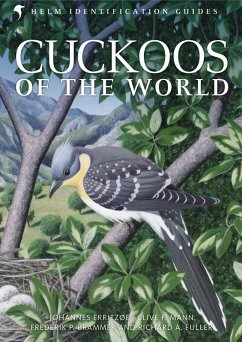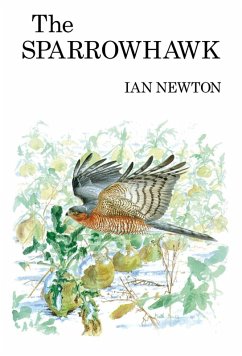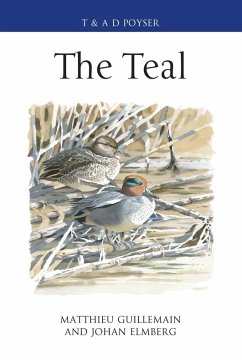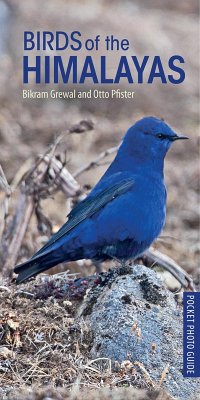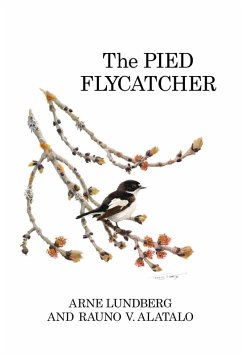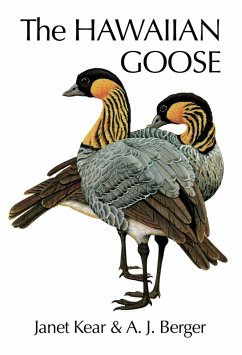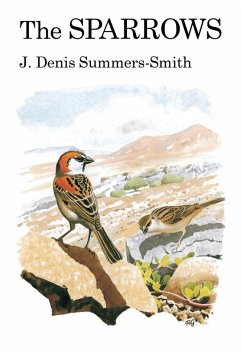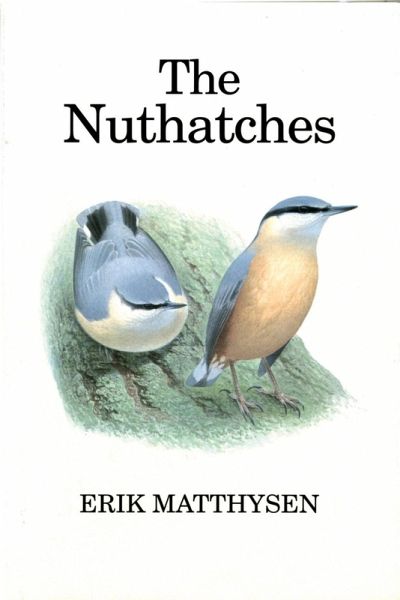
The Nuthatches (eBook, PDF)

PAYBACK Punkte
25 °P sammeln!
The Nuthatches is based on the European Nuthatch, with comparative information on the other west Paleartic and world species. The nuthatches are common and widespread birds throughout the Northern Hemisphere, but only poorly studied until quite recently. Erik Matthysen's extensive studies, started in 1982, have done much to illuminate the ecology of the Eurasian species, and to create a rich picture both of this bird and its 23 fellows around the world. The nuthatches are familiar for their peculiar, head-down, foraging style on the trunks of mature woodland trees. They are also noteworthy for...
The Nuthatches is based on the European Nuthatch, with comparative information on the other west Paleartic and world species.
The nuthatches are common and widespread birds throughout the Northern Hemisphere, but only poorly studied until quite recently. Erik Matthysen's extensive studies, started in 1982, have done much to illuminate the ecology of the Eurasian species, and to create a rich picture both of this bird and its 23 fellows around the world.
The nuthatches are familiar for their peculiar, head-down, foraging style on the trunks of mature woodland trees. They are also noteworthy for their generally elaborate nest building behaviour - ten of the nuthatch species use mud to reduce the nest cavity entrance Ca behaviour otherwise shown only by hornbills) while others make elaborate constructs entirely of mud, or use resin to repel nest predators.
They also exhibit a complex territorial system and associated behavioural repertoire, occupying a territory as a pair, year round, perhaps as an adaptation to their reliance on stored food during the winter months. The intricate dynamics of pair-bond stability, territory size and the various strategies of floating, non-territory holders is the subject of an entire and fascinating chapter.
The habitat fragmentation that has accompanied widespread disruption of woodland habitats everywhere has had a profound effect on territorial and social behaviour and this too is dealt with at length. Following a detailed description of the ecology and behaviour of the Eurasian Nuthatch, Erik Matthysen goes on to consider what is known of the other species, and to compare and contrast their biology.
Although many are poorly known, this part of the book enables many fascinating insights and sets the scene for further work which may explain the links between the ecology, behaviour, habitat and evolutionary relationships of the various species. David Quinn' s excellent drawings complete an interesting and authoritative volume.
The nuthatches are common and widespread birds throughout the Northern Hemisphere, but only poorly studied until quite recently. Erik Matthysen's extensive studies, started in 1982, have done much to illuminate the ecology of the Eurasian species, and to create a rich picture both of this bird and its 23 fellows around the world.
The nuthatches are familiar for their peculiar, head-down, foraging style on the trunks of mature woodland trees. They are also noteworthy for their generally elaborate nest building behaviour - ten of the nuthatch species use mud to reduce the nest cavity entrance Ca behaviour otherwise shown only by hornbills) while others make elaborate constructs entirely of mud, or use resin to repel nest predators.
They also exhibit a complex territorial system and associated behavioural repertoire, occupying a territory as a pair, year round, perhaps as an adaptation to their reliance on stored food during the winter months. The intricate dynamics of pair-bond stability, territory size and the various strategies of floating, non-territory holders is the subject of an entire and fascinating chapter.
The habitat fragmentation that has accompanied widespread disruption of woodland habitats everywhere has had a profound effect on territorial and social behaviour and this too is dealt with at length. Following a detailed description of the ecology and behaviour of the Eurasian Nuthatch, Erik Matthysen goes on to consider what is known of the other species, and to compare and contrast their biology.
Although many are poorly known, this part of the book enables many fascinating insights and sets the scene for further work which may explain the links between the ecology, behaviour, habitat and evolutionary relationships of the various species. David Quinn' s excellent drawings complete an interesting and authoritative volume.
Dieser Download kann aus rechtlichen Gründen nur mit Rechnungsadresse in A, B, BG, CY, CZ, D, DK, EW, E, FIN, F, GR, HR, H, IRL, I, LT, L, LR, M, NL, PL, P, R, S, SLO, SK ausgeliefert werden.



